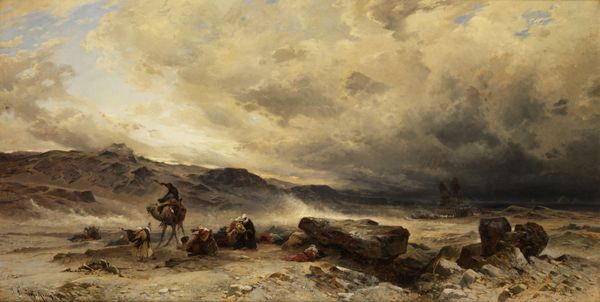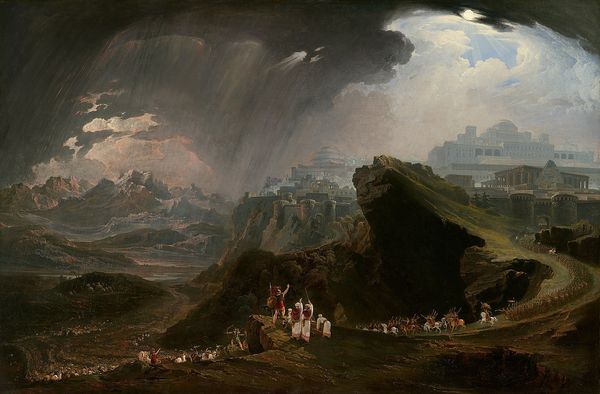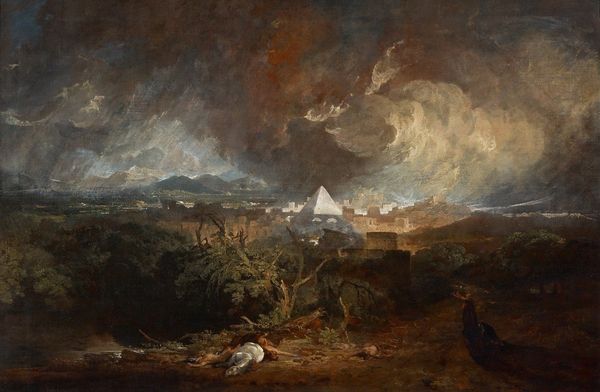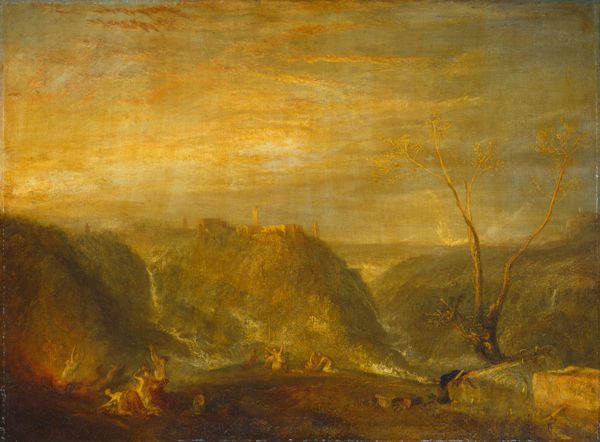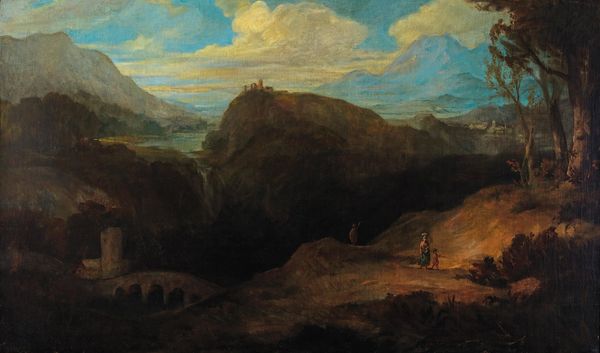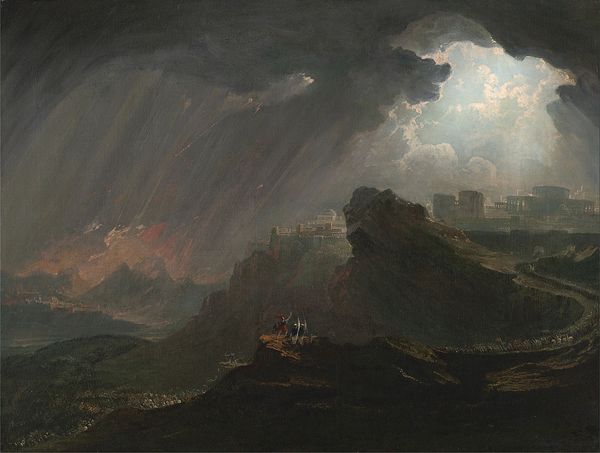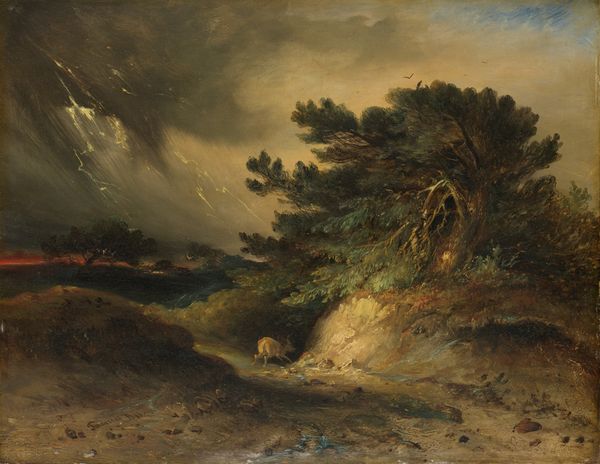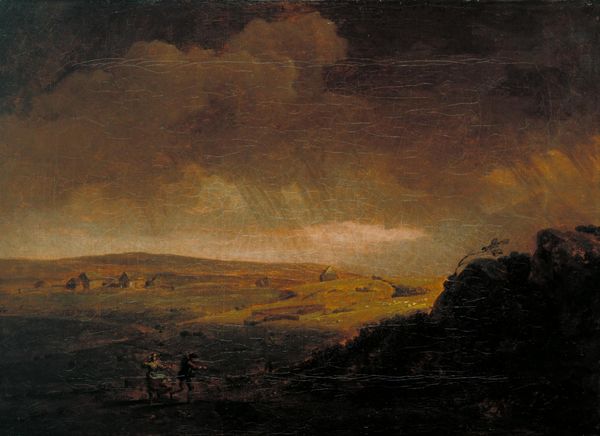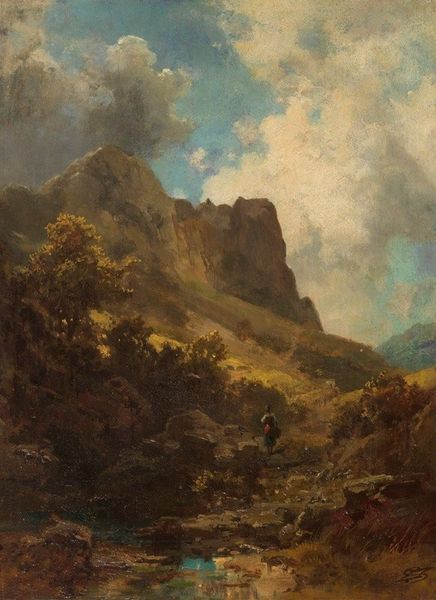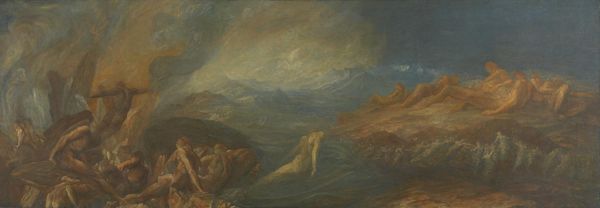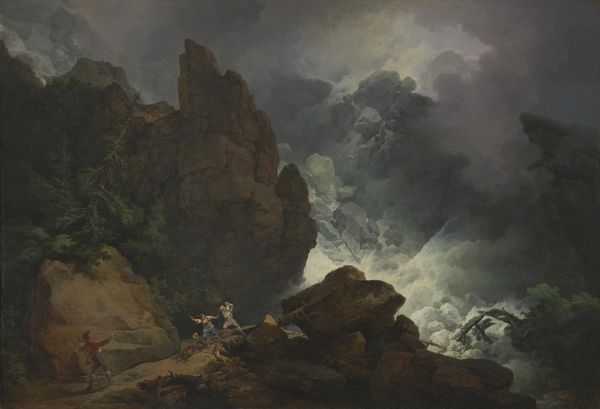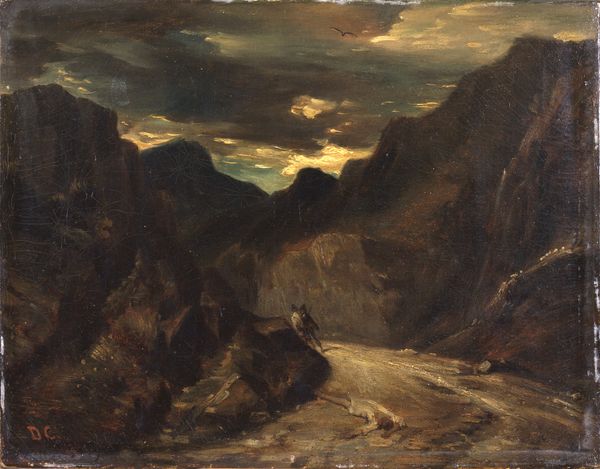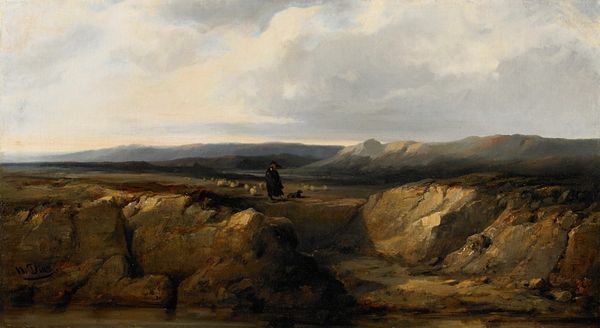
painting, oil-paint
#
allegory
#
painting
#
oil-paint
#
landscape
#
figuration
#
romanticism
#
history-painting
#
sublime
Dimensions: 50.1 x 71 cm
Copyright: Public domain
Editor: So, this is John Martin's "Macbeth," painted in 1820. It's an oil painting and, wow, the landscape is immense. It’s incredibly dramatic! What strikes you most when you look at this piece? Art Historian: Dramatic is certainly the word. It hits you right in the gut, doesn't it? For me, it's the tension – that almost theatrical battle between light and shadow, promise and dread. You see those tiny figures? They're almost swallowed whole by the immensity of the scene. Martin's was always one for a little theatrical license, weren’t they? Almost mocking their hubris, wouldn’t you say? Editor: Absolutely, they’re practically invisible in the landscape. It’s quite overwhelming. I wonder, how does it connect to Shakespeare’s Macbeth? Art Historian: Look closer...see the swirling mist, the way it practically births those prophetic witches? Martin isn't just illustrating a scene, he's visually interpreting the play's psychological landscape. Think about Macbeth's ambition, his descent into darkness - that's what this landscape embodies. It's sublime. Frightening, awe-inspiring, almost a spiritual reckoning in paint. Did Martin get it right in your mind's eye? Editor: He definitely captures the overwhelming feeling of fate, almost mocking Macbeth’s choices with the power of the landscape. It makes me wonder if I would have been sucked in as Macbeth did! I thought of him in heroic terms before now... Art Historian: Precisely. These landscapes mirror inner turmoil; their sublime character isn't about gentle beauty, it is about grappling with our place in an intimidating cosmos. Perhaps it reveals something about how we respond to beauty, horror, ambition - to the chaotic poetry of life itself, eh? It is less about whether it happened, but whether we believe it! Editor: I hadn't thought of it like that. Seeing it as a reflection of Macbeth's inner self… it completely changes how I perceive the play itself! Art Historian: Glad to have shaken that kaleidoscope for you, kiddo. Always pays to turn an art experience upside down now and again.
